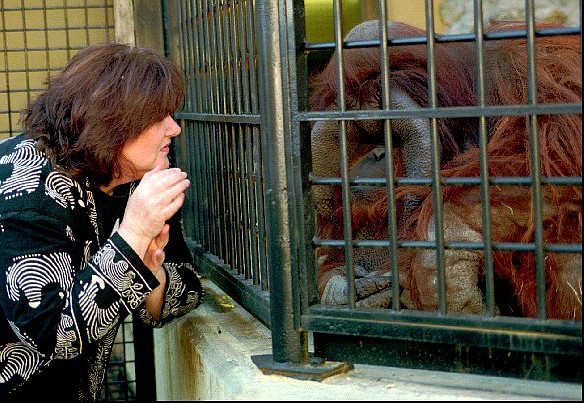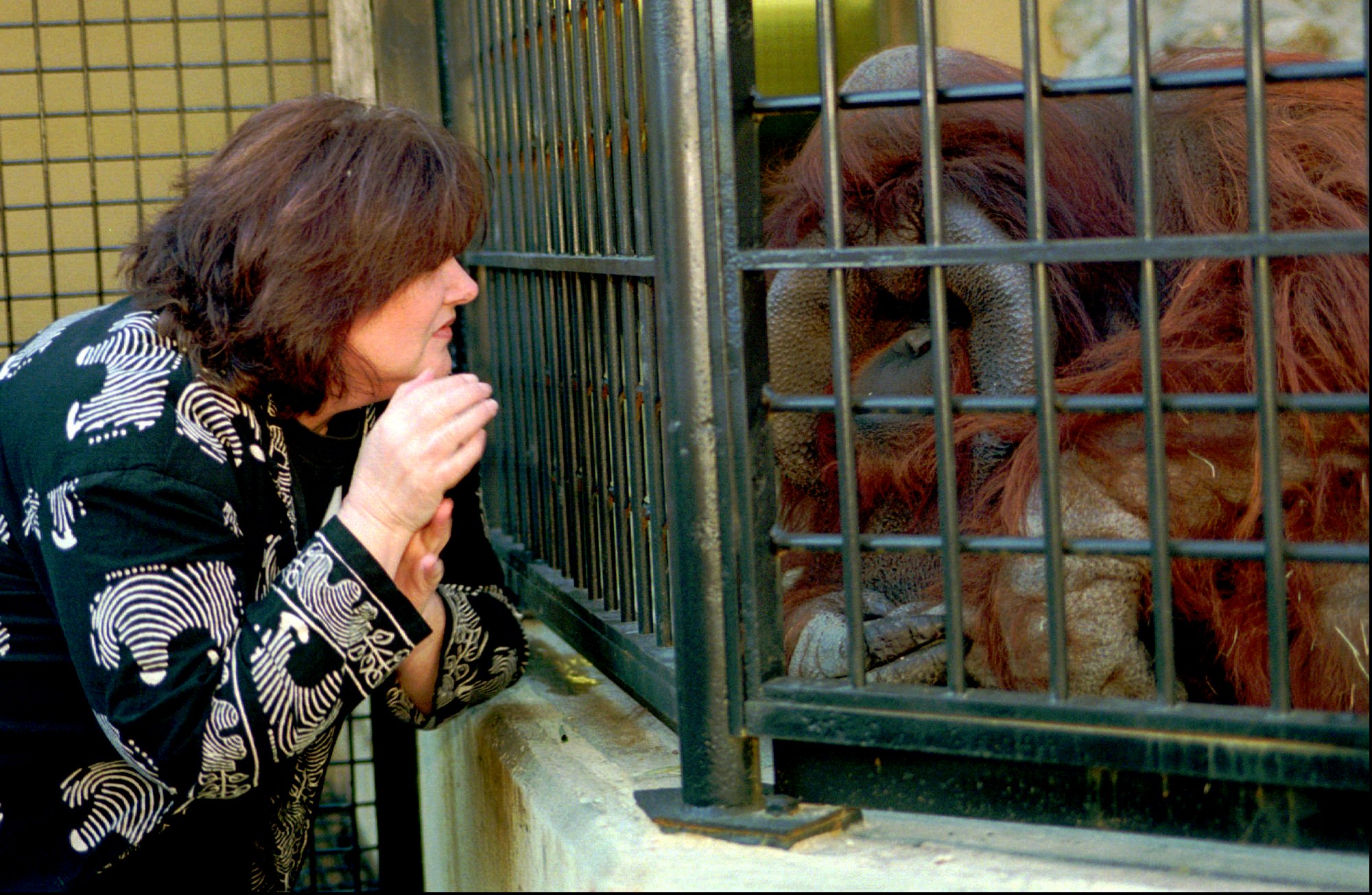WATCH IT TONIGHT"The Ape Who Went to College" airs at 8 p.m. today on Georgia Public Broadcasting and WTCI. The hourlong Animal Planet documentary is about Chantek, a male orangutan who learned sign language while living on the University of Tennessee at Chattanooga campus from 1978 to 1986. The program will air multiple times on GPB after tonight's premiere.
University of Tennessee at Chattanooga anthropology professor Lyn Miles thought she'd contribute to science in the late 1970s by being the first researcher to teach sign language to an orangutan.
She didn't expect to have her heart broken in the process.
An hourlong documentary, "The Ape Who Went to College," airs tonight on Georgia Public Broadcasting. It tells the story of the relationship between Miles and Chantek, a male orangutan who spent eight years on UTC's campus and now lives at Zoo Atlanta.
Chantek was 9 months old when he arrived at UTC in 1978 from the Yerkes National Primate Center in Atlanta.
Miles was thrilled to have the opportunity to teach sign language to an orangutan. At the time, similar research had been done with a gorilla, a chimpanzee and a bonobo (formerly known as pygmy chimpanzee).
"I felt privileged to be the fourth researcher to try the fourth species of great ape," Miles says in the documentary, which features film footage from the 1970s and '80s, including local TV news reports.
"I wanted to raise him as if he were a human child," she said.
Miles and a team of UTC staff and student volunteers took care of Chantek, who wore diapers at first.
Chantek showed a quick aptitude for sign language and eventually developed the vocabulary of a 7- to 8-year-old human, Miles said.
He coined his own phrases, including one for ketchup -- which he loved on cheeseburgers.
"He called it 'tomato toothpaste,'" Miles said. "He knew toothpaste, and he knew tomato."
Chantek became a familiar sight on UTC's campus, where he lived in a trailer surrounded by chain-link fencing. The orangutan sat in on classes and had his picture featured in the college yearbook alongside students' photos. Chantek's handlers even took him to a local fast-food restaurant, where he'd buy treats with the "allowance" he'd get as a reward for tasks.
"What a special time that was," researcher Ann Southcombe says in the documentary. For seven years, Southcombe spent every day with Chantek as his "mom and teacher."
But Chantek was a victim of his own intelligence.
Campus officials were afraid he might use his cleverness, strength, dexterity and tool-using ability to escape from confinement and injure a student.
Those fears seemed founded when he reportedly jumped on a female student who was sitting on the university steps in February 1986. Soon afterward, Chantek was whisked back to the Yerkes Primate Center in Atlanta. When Miles got to see him, he was confined inside a 5-foot-by-5-foot cage.
She said they signed the following exchange:
"How are you?" she asked.
"Hurt," he said.
"Where?" she asked.
"Feelings," he said.
Miles was unable to see him for several years at Yerkes, during which time Chantek suffered from depression and his weight ballooned dangerously, she said.
After 11 years, Chantek was moved to Zoo Atlanta. Now 36 years old, he has a mate there and freedom to roam outdoors.
But he still sees himself as half human, Miles said, and calls the zoo's other orangutans "orange dogs."
Zoo Atlanta initially gave Miles a pass key and talked of letting her do research there. But one day, she said, her pass key stopped working. So now she pays to get into the zoo.
"When I show up, he signs to me that's he's crying because he wants to see me every day," Miles said. "He wants me to get the car and take him home to Chattanooga."
Miles would like to see Chantek in an environment where he could better use his language skills and intelligence.
"Our society doesn't have a halfway house for great apes," said Miles, who calls herself a "foster mom for another species."
Contact staff writer Tim Omarzu at tomarzu@timesfreepress.com or twitter.com/TimOmarzu or 423-757-6651.

